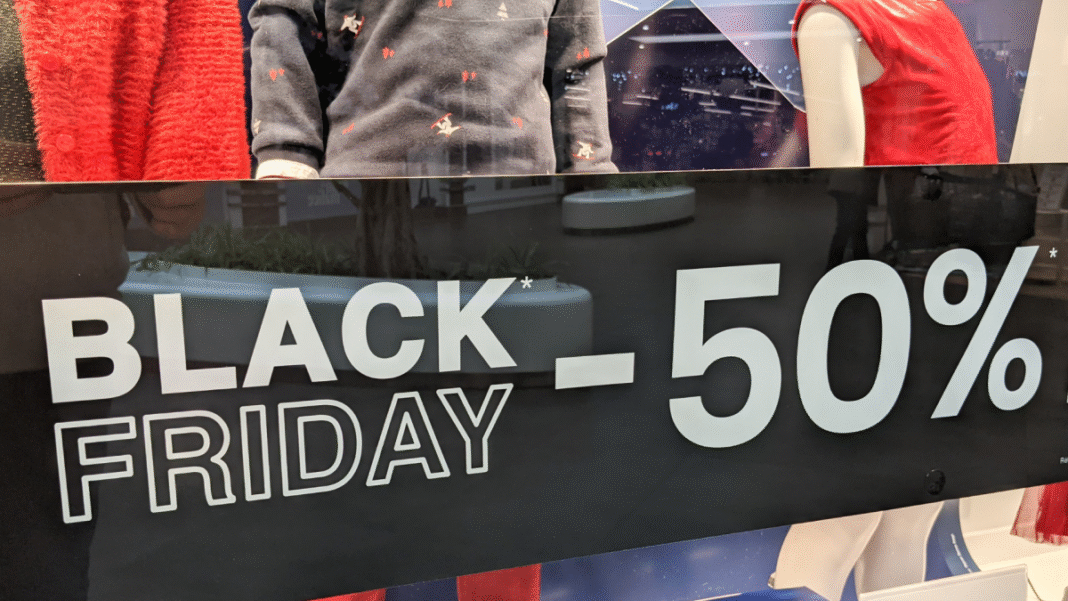Holiday shopping season is ripe for scammers, as consumers rush to find and take advantage of some of the best discounts of the year, and potentially overlook red flags that signal fraud. Security researchers are warning of an uptick in scams capitalizing on the Black Friday and Cyber Monday hype. Fraudsters know that they can prey on shoppers’ sense of urgency and excitement for limited-time, exclusive deals—and AI is making these campaigns even more difficult to spot than usual.
New data from McAfee suggest that nearly half of Americans have come across an AI-powered scam while shopping, from deepfakes impersonating celebrities pushing promotions to near-flawless spoofed websites that steal your credit card information.
Here are the scams to watch for this Black Friday.
Spoofed websites are a common type of a scam, and fraudsters use holiday shopping season to trap users with fake retail sites and sales pages that look legitimate but are actually just collecting data like your login credentials and payment information. Scammers will use stolen assets like logos and product photos from known and trusted brands, and AI makes it easy to set up a convincing (but fake) small business website with elements like a customer service page and consumer reviews in no time.
Another shopping scam facilitated by AI is the impersonation scam. You think you’re watching a popular influencer or celebrity promoting an exclusive deal or product giveaway on TikTok or another social media platform, but it’s actually a deepfake. If you click through to enter or buy, you’ll land on a counterfeit page (as outlined above) designed to steal from you.
According to Google’s November fraud and scam advisory, scammers can get eyes on their content by hijacking search terms for Black Friday sales, running deceptive ads, or pushing deals on social media. Fake storefronts may appear as sponsored links, which are easy to overlook if you’re in a rush to make a purchase.
Of course, you may encounter other common holiday scams, such as fake shipping notifications that request payment in order to resolve a delivery issue as well as account verification scams that prompt you to confirm personal details. These phishing and smishing campaigns use standard scam tactics like impersonating a legitimate company or service and sending a fraudulent link that collects your bank information or username and password combination.
Black Friday scam red flags
When shopping holiday deals, slow down enough to look for common signs of scams. Fraudsters will use urgency—such as a limited time to secure a deal or a limited number of items left in stock—in hopes you won’t think before you buy. You should also be wary of any deal that is too good to be true, or a promotion with especially low prices that are out of line with other sales on similar items. This includes influencers pushing “exclusive” opportunities. If you are purchasing from a small business you don’t know, google the brand and read third-party reviews to see whether it is legitimate.
Instead of clicking links from emails, texts, and social media posts promoting sales, go directly to the retailer’s website and search for the deal. If you do click through, check the URL carefully to ensure it is legitimate (scammers may use homoglyphs that avoid detection at first glance) and look for website elements that real companies have, such as a privacy policy and address. If you see a promotion on social media, check the creator’s account to see when they joined the platform, what they’ve posted in the past, and whether they are verified.
Beware of any site that requires you to pay with a gift card, cryptocurrency, or bank transfer versus a credit card, which has some protection in the case of fraud. Legitimate retailers will use legitimate payment methods.
Finally, never enter your login credentials unless you’ve confirmed that the site you’re using is trustworthy. This includes delivery services and your Amazon and PayPal accounts, all of which scammers may pressure you to “verify” in order to resolve a billing or delivery issue.
